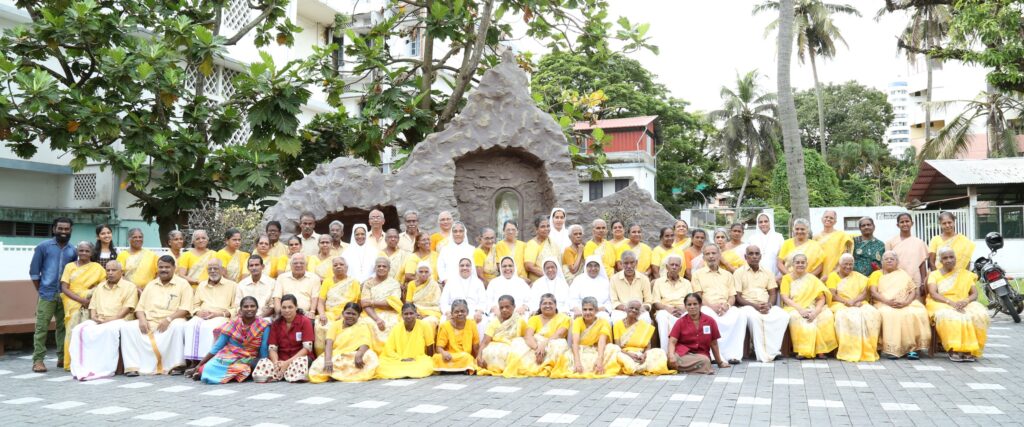About Us
House of Providence is a home for the aged located at Kacheripady, in Kochi Corporation in the civil district of Ernakulam since 1937. It is 1 km from the Town Railway Station (North) and 1½ km from the KSRTC bus station. This is a very thickly populated and multicultural area with people of different religions and castes. The place has many educational Institutions – schools and colleges of good repute. The High Court also is nearby. It has completed 77 years of service in the care and protection of the elderly.
It is founded by Most Rev. Dr. Joseph Attipetty, the late Archbishop of Verapoly, on 4th May 1937. He was inspired by the ‘Piccolo Casa’ (Little House) of Turin which cared for the elderly. Modeled on that, he started this house for the elderly which is considered the oldest of the kind in South India. It was his desire that the Institution should thrive only on the providence of God. He commended the institution to the generosity of the public. It is a registered Trust with the number 369/02 and Archbishop of Verapoly as the Managing Trustee. It holds 80G Certification and has the Recognition Certificate from the Board of Control for Orphanages and other Charitable Homes. The House was inaugurated on 4th May 1937 with 4 destitute women, now accommodating around 105 residents both men and women irrespective of caste and creed.
The Archbishop invited the Sisters of Charity to render free service to the elderly in this newly formed Institution. The pioneers were Sisters Erminia Sanadri (superior), Sophie Pathrao, Clara Pakalomattam and Lydia Vallikattil. The land and the buildings belong to the Arch diocese of Verapoly. The sisters stayed with the residents for a year until the convent was built in 1938. Ever since its foundation, House of Providence has been a serene abode for the elderly who seek peace, security and homely care, until they welcome the end with dignity.

Vision
“A just society where old age is reckoned as the glory and blessing of God”
Mission
“To ensure human rights of older people and make them productive and contributive for the next generation.”
